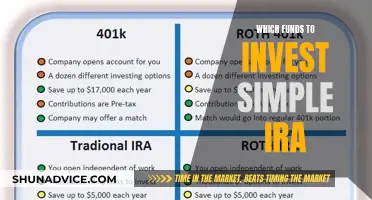
An alternative investment fund (AIF) is a collective investment in non-mainstream, 'non-standard' assets, where investors' capital is pooled, and the returns are also pooled. AIFs are defined in the UK via the Alternative Investment Fund Managers Regulations (SI 2013/1773) (AIFMD UK Regulation) and the FCA Handbook. AIFs are high-risk investments, generally attracting professional investors or high-net-worth individuals due to the potential for greater rewards than conventional investment funds.
AIFs can include tangible assets such as wine, watches, and fine art, as well as intangible assets like hedge funds and private equity. They are often illiquid and are typically not connected to traditional investment products.
The UK is regarded as one of the leading global asset management centres, with an investment funds industry covering both traditional and alternative asset classes. UK AIFs are integral to many fund structures, particularly in funds with alternative investment strategies such as private equity, real estate, alternative credit, and infrastructure.
What You'll Learn

What is an alternative investment fund?
An alternative investment fund (AIF) is a collective investment in so-called 'non-standard' tangible and non-tangible assets. AIFs are considered high-risk investments for professional investors, as they carry a greater degree of risk than conventional investment funds. However, they are attractive to some investors due to the potential for greater rewards.
AIFs are defined in the UK via the Alternative Investment Fund Managers Regulations (SI 2013/1773) (AIFMD UK Regulation) and the FCA Handbook. They are established for the purpose of raising capital from a number of different investors, with the aim of investing these funds into assets to generate favourable returns.
AIFs can include tangible assets such as wine, watches, and fine art, as well as intangible assets such as hedge funds and private equity. They are often characterised by low liquidity and have little connection to 'traditional' investment products.
AIFs are subject to the Alternative Investment Fund Managers Directive (AIFMD), an EU ruling that provides a regulatory framework for AIF managers. The AIFMD covers the marketing and management of AIFs, as well as administration, and aims to offer protection to investors through greater transparency and availability of information.
Pension Fund Managers: Their Investing Strategies Explained
You may want to see also

What are the risks and benefits?
Risks and Benefits of Alternative Investment Funds (AIFs) in the UK
Alternative Investment Funds (AIFs) in the UK are a type of collective investment that raises capital from multiple investors to invest in "non-standard" or "alternative" assets, such as fine wine, art, and hedge funds. These funds are considered high-risk investments and are typically targeted at professional or high-net-worth individuals.
Benefits:
- Potential for Higher Returns: AIFs are attractive to investors due to the potential for greater financial rewards compared to conventional investment funds.
- Diversification: AIFs can help diversify an investment portfolio as they typically don't correlate with the stock market. This can add a layer of protection to an investor's portfolio by reducing overall portfolio risk and mitigating volatility.
- Flexibility: AIFs offer more flexibility than mainstream investment funds, allowing investors to explore a diverse range of assets.
- Access to New Markets: AIFs provide investors with access to markets that are typically not available through traditional investments.
Risks:
- High Risk of Loss: AIFs carry a greater risk of losing capital compared to conventional investments due to their focus on non-standard assets.
- High Fees and Large Initial Investment: AIFs typically have high fees and require a significant initial investment amount.
- Low Liquidity: Many alternative investments have low liquidity, making it challenging to sell them quickly if needed.
- Complexity and Lack of Transparency: AIFs are often complex and may have opaque structures, making it difficult for investors to fully understand the associated risks.
- Difficult to Value: The unique and rare nature of some alternative investments can make it challenging to accurately value them.
- Reduced Regulation: AIFs have fewer regulations compared to traditional investments, which can increase the risk of fraud or misconduct.
It is important for investors to carefully consider their risk appetite, conduct extensive due diligence, and seek professional advice before investing in AIFs.
Climate Investment Funds: What Are They?
You may want to see also

Examples of alternative investments
Alternative investments are financial assets that do not fall into conventional categories such as stocks, bonds, and cash. They can be tangible or intangible and include private equity or venture capital, hedge funds, managed futures, art and antiques, commodities, derivatives contracts, and real estate.
- Private Equity/Venture Capital: Private equity investments involve buying shares in a private company or a group of companies. Venture capital funds provide financial backing to promising start-up companies in exchange for an equity stake.
- Hedge Funds: Hedge funds are private, pooled investment funds that seek high returns through varied and sometimes risky investing strategies. They can invest in anything from publicly traded securities and start-ups to currencies and derivatives.
- Real Estate: This includes investing in physical properties or property-based securities, such as real estate crowdfunding platforms, real estate investment trusts (REITs), and real estate mutual funds.
- Commodities: Commodities are raw materials such as gold, silver, oil, or agricultural products. They are considered a hedge against inflation and have real-world uses and perpetual demand.
- Art and Collectibles: These include antiques, sports memorabilia, entertainment memorabilia, high-end watches, fine wine, classic cars, jewellery, fashion items, and other luxury items.
- Cryptocurrency: Cryptocurrency is an emerging form of digital currency that is outside the traditional scope of stocks and bonds. It may provide capital appreciation or passive income through staking rewards.
- Peer-to-Peer Lending: This involves making loans to individuals or businesses through online platforms that connect borrowers with investors. It is similar to investing in bonds but is done on private markets and often involves riskier clients.
Best Accounts to Invest in Mutual Funds
You may want to see also

Regulation and legislation
The Alternative Investment Fund Managers Directive (AIFMD) is the key piece of legislation that regulates alternative investment funds (AIFs) in the UK. This EU ruling, which came into force in the UK in July 2013, provides a regulatory framework that AIF managers must adhere to. The AIFMD covers the marketing, management, and administration of AIFs, aiming to offer protection to investors through greater transparency and availability of information.
In the UK, the AIFMD is implemented through the Alternative Investment Fund Managers Regulations 2013 (AIFMD UK Regulation) and the FCA Handbook. The FCA Handbook includes the FUND chapter and the on-shored version of the EU AIFMD Delegated Regulation, collectively referred to as "UK AIFMD". The UK AIFMD applies specifically to the managers of AIFs, known as AIFMs.
While AIFs themselves are generally not required to be authorised or licensed by the FCA, the AIFMD imposes certain requirements on AIFMs that indirectly affect the AIFs they manage. These include the appointment of a depositary for custody of certain assets, organisational controls related to risk management, liquidity, and valuation, conduct of business rules, and rules pertaining to companies where the AIF has a substantial stake.
The FCA authorises and regulates individuals or entities carrying out "regulated activities" in the UK, including acting as the manager of an AIF. It is a criminal offence to breach this requirement, and any agreements made in contravention are unenforceable. The FCA has entered into memoranda of understanding with regulatory authorities in other jurisdictions, including the EEA, Australia, the British Virgin Islands, and the United States, to facilitate cooperation and information sharing.
The FCA also oversees the marketing of AIFs, with specific requirements for full-scope AIFMs wishing to market AIFs to UK investors. Pre-investment disclosures and annual reports are mandated by the AIFMD to ensure transparency and provide information to prospective and current investors. Additionally, the FCA's rules extend to financial promotions and marketing materials, which must be fair, clear, and not misleading.
The AIFMD allows for two key exemptions that exclude certain AIFMs from its scope: the intra-group exemption and the de minimis exemption. The intra-group exemption applies when the investors of the managed funds consist only of the AIFM itself, its parent company, subsidiaries, or other subsidiaries sharing a common parent. The de minimis exemption is designed for smaller AIFMs, excluding those whose total assets under management do not exceed certain thresholds.
Investing 101: Choosing the Right Funds for Your Portfolio
You may want to see also

Marketing alternative investment funds
Understanding the Landscape
It is important to recognise that alternative investment funds (AIFs) are considered non-standard or non-conventional investments. AIFs invest in tangible and intangible assets that do not fall under the categories of stocks, bonds, and cash. Examples include wine, watches, fine art, hedge funds, private equity, real estate, and even rare coins.
Target Audience
AIFs are typically aimed at professional investors or high-net-worth individuals due to their higher risk and greater initial investment requirements. These investors often seek greater diversification, higher returns, and flexibility in their investment portfolios.
Regulatory Compliance
In the UK, AIF managers must comply with the Alternative Investment Fund Managers Directive (AIFMD), an EU ruling that provides a regulatory framework. It is important to understand and adhere to the SEC requirements, rules, and regulations under the Advertising Rule to build and maintain client trust.
Marketing Strategies
When marketing AIFs, it is crucial to provide clear and accurate information. Inform prospective clients about the fund's objectives, risks, charges, and expenses. Ensure that all marketing materials are compliant and that a robust review process is in place. Do not make misleading claims or guarantees about future performance.
Building Relationships
Trust is essential when marketing alternative investment funds due to the competitive nature of the industry and the higher risk associated with these investments. Emphasise transparency and provide potential investors with accessible information.
Investor Relations
Focus on building and maintaining strong investor relations. Understand the investors' expectations and the investment landscape to create successful marketing campaigns. Consider the tools, techniques, and skill sets required for effective fundraising and investor relations.
Diversification and Specialty Options
Highlight the benefits of AIFs, such as the potential for higher returns and access to specialty investment options. Emphasise the diversification that AIFs can bring to an investment portfolio, reducing overall risk.
Addressing Challenges
Address the challenges of alternative investment funds, such as high fees, illiquidity, and complexity. Provide clear explanations and guidance to potential investors, ensuring they have the necessary information to make informed decisions.
Emphasising Unique Benefits
Alternative investment funds can offer unique benefits such as access to niche markets, potential for capital appreciation, and protection against inflation. Highlight these advantages to attract investors seeking alternative options to traditional investments.
Tax-Free Mutual Funds: Smart Investment Strategies
You may want to see also
Frequently asked questions
An alternative investment fund (AIF) is a collective investment in non-standard tangible and non-tangible assets. Investors pool their capital and the returns are also pooled. AIFs are considered high-risk investing and are therefore more attractive to professional investors or high-net-worth individuals.
Examples of alternative investment funds include tangible assets such as wine, watches, and fine art, as well as intangible assets such as hedge funds and private equity.
Benefits of investing in AIFs include the potential for higher rewards and flexibility in comparison with mainstream investment funds.
Drawbacks of investing in AIFs include higher fees, a larger initial investment, and a greater risk of loss of capital.







